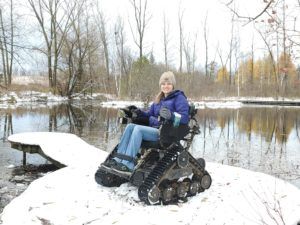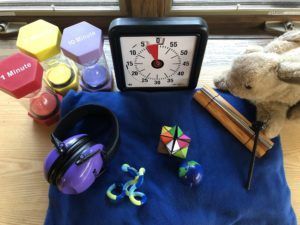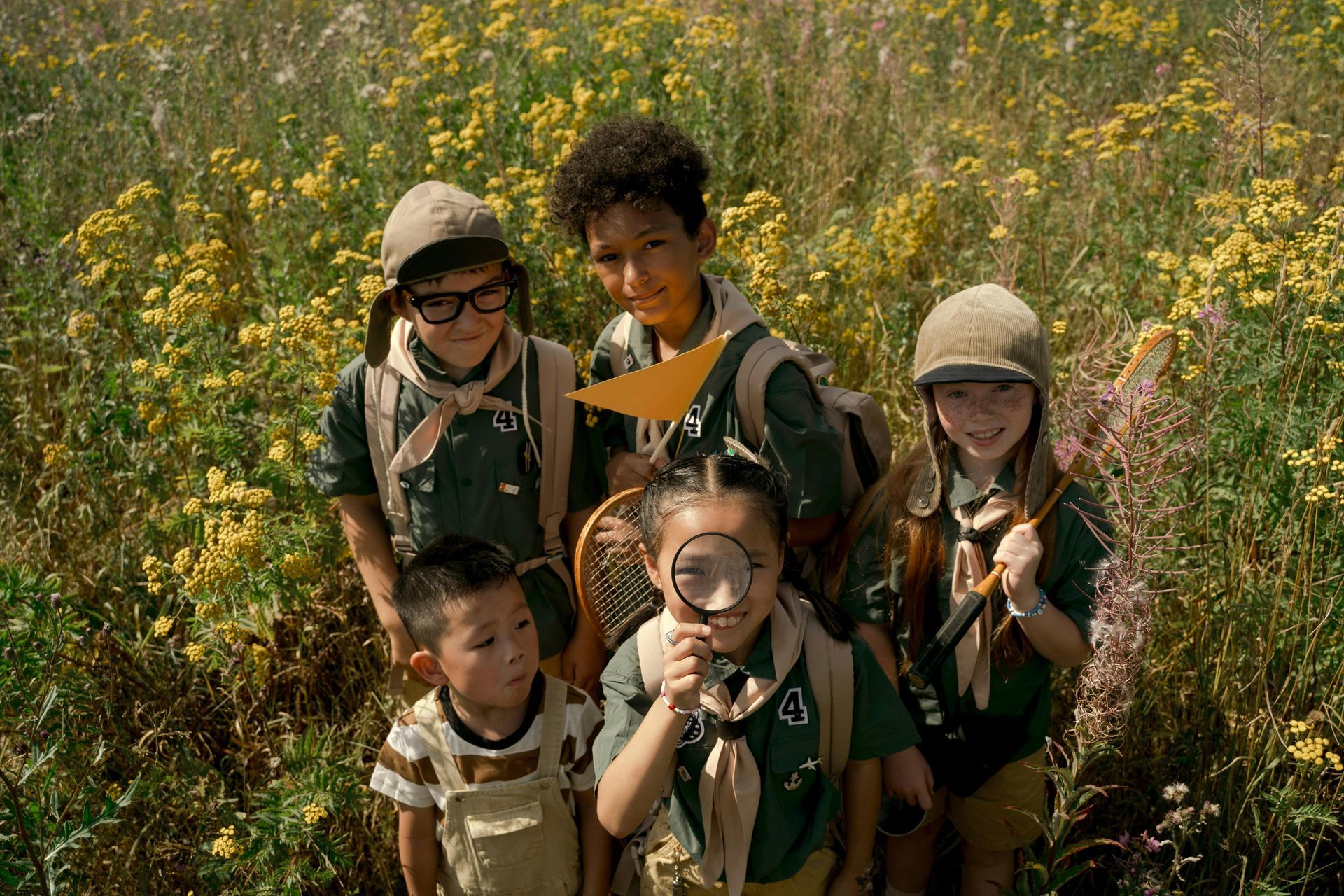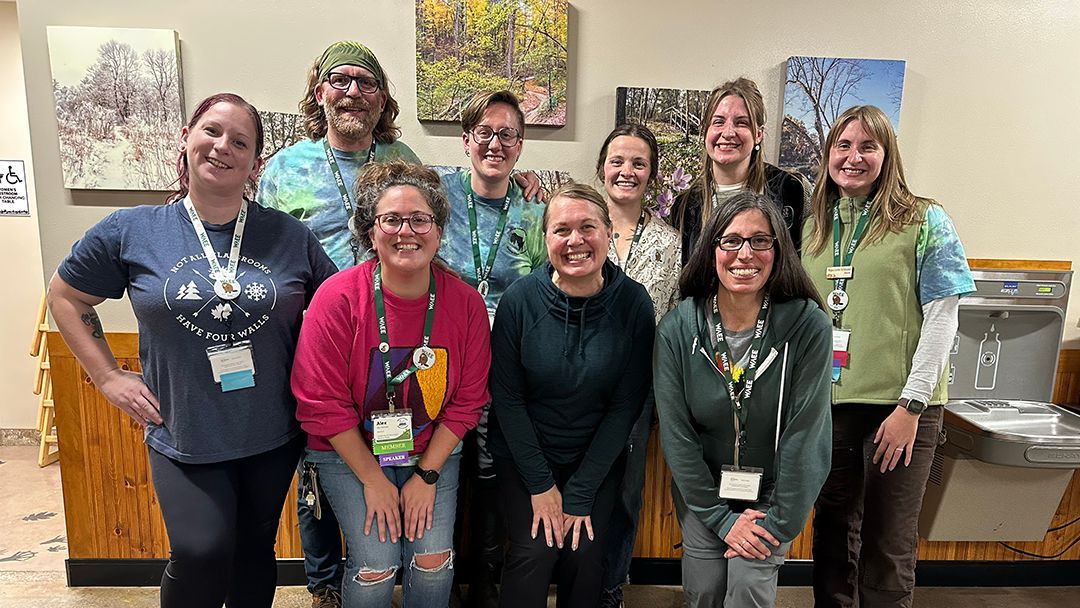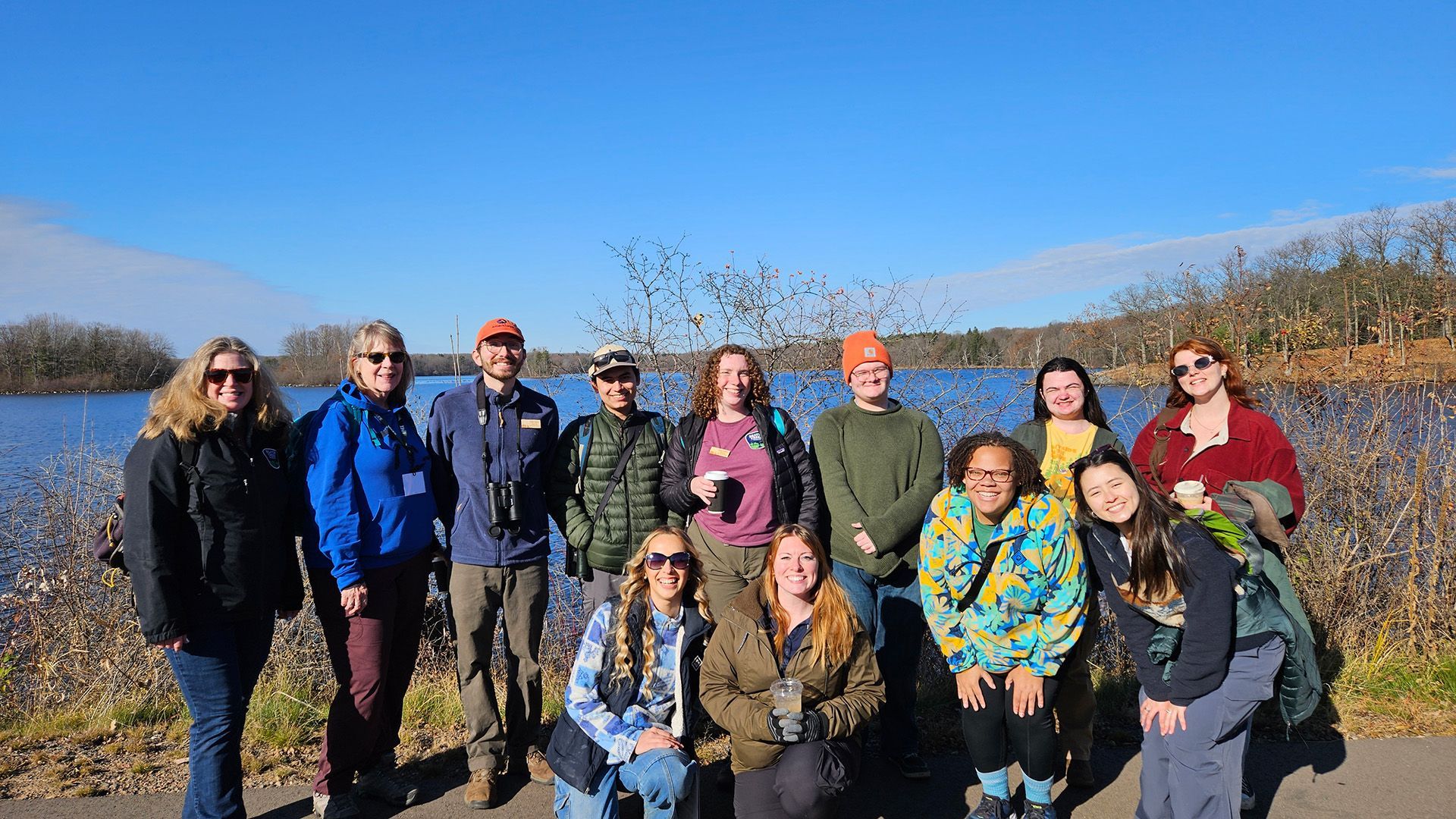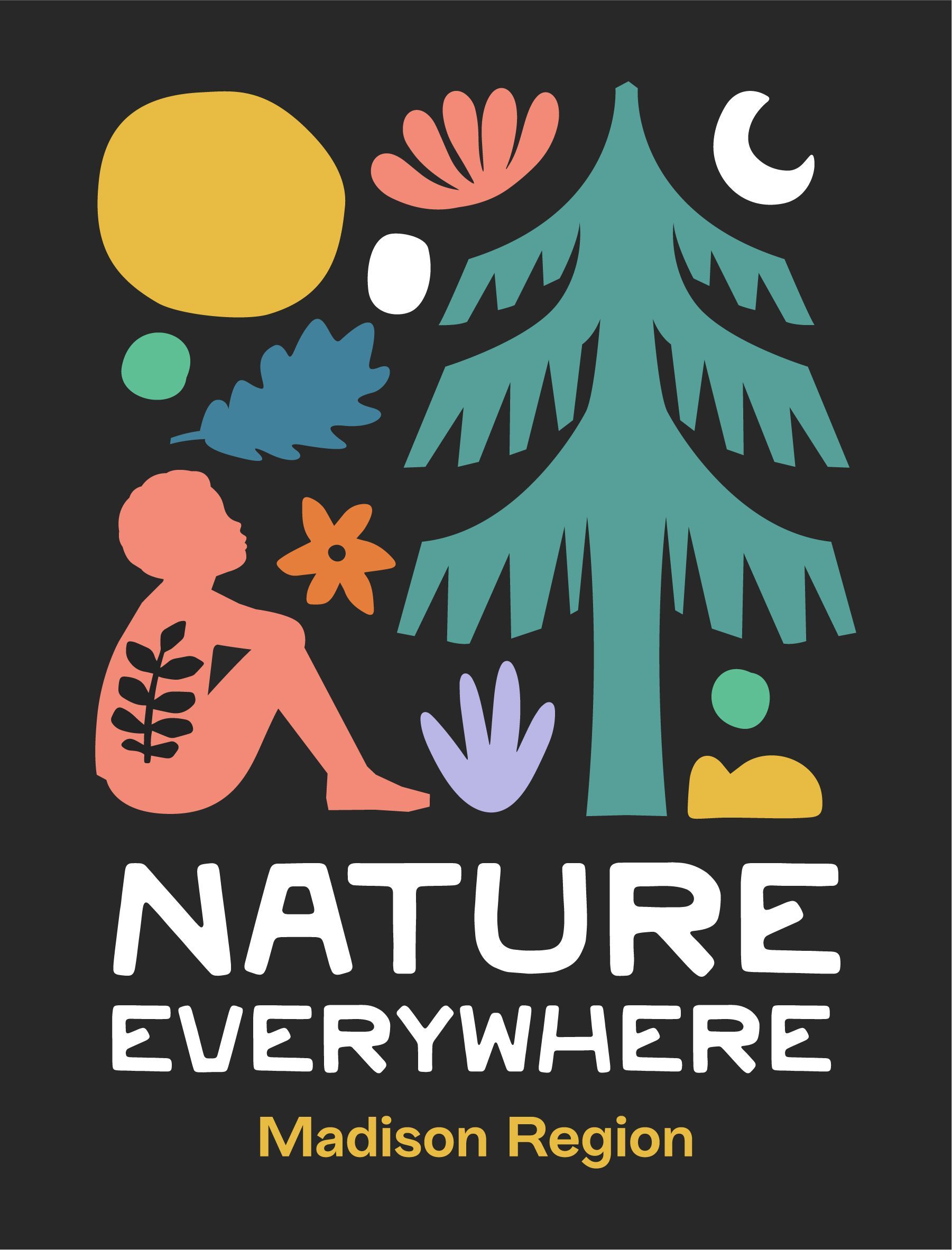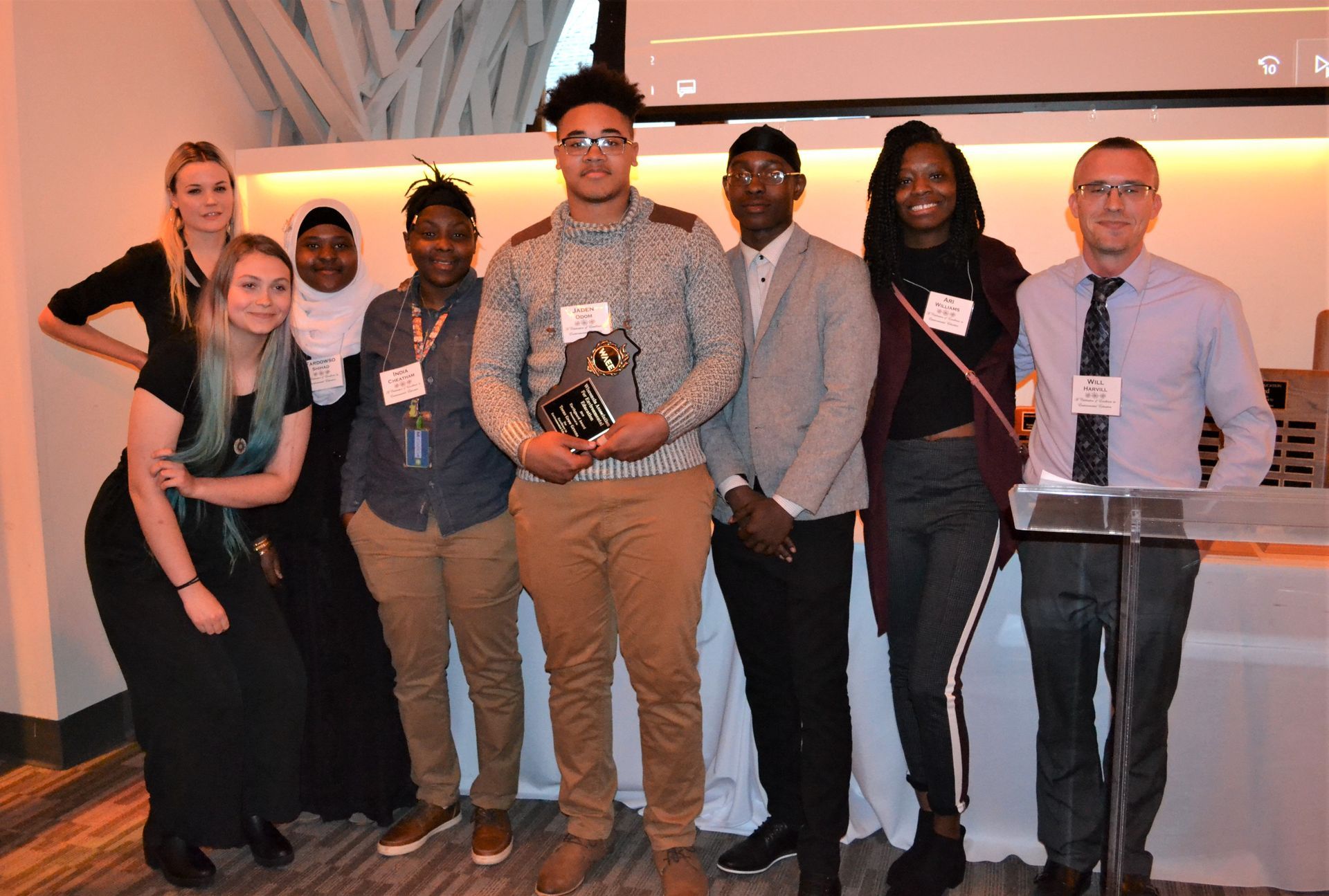Riveredge Nature Center Prioritizes Inclusivity and Equity
"We want everyone to see that they belong outdoors"
With its 379 acres of wilderness surrounding the Milwaukee River, Riveredge Nature Center (Riveredge) has been providing environmental education to people of all ages in Southeastern Wisconsin for over 50 years, making it one of the largest and oldest nature centers in the region. The center, which also focuses on conservation and research, is open to the public and hosts field trips for local schools, homeschool students, families, and the newly opened Riveredge Outdoor Learning Elementary School. With a diverse audience ranging from rural communities to inner-city Milwaukee, Riveredge strives to be inclusive and equitable.
The impetus for these efforts stems from Riveredge staff, whose motivation creates awareness of different techniques, tools, and attitudes effective for inclusivity in teaching environmental education. For example, Riveredge has several sensory bins and toys to help students with sensory sensitivity be more focused on lessons. The idea to purchase these adaptive tools came from observations made by an Inclusion & Accessibility Intern during winter 2017 who noticed, through her own sensory processing disorder, opportunities to further engage students with cognitive disabilities.
Riveredge benefits from hiring staff with differing abilities and backgrounds who bring new perspectives to the organization. Julie Dickson, Administrative Assistant for Education and Membership, uses a wheelchair and requested handrails be installed on the ramp to the visitor center. The handrails will benefit everyone, with or without a mobility impairment, all-year round and especially during the winter months. They are expected to be installed in spring 2020. As of November 2019, Riveredge has automatic front doors with push plates which give more people the opportunity to independently access the visitor center.
Much of Riveredge’s drive for becoming more inclusive and equitable comes from professional development events. The organization budgets for staff to attend Wisconsin Association for Environmental Education (WAEE), National Association for Interpretation (NAI), and North American Association for Environmental Education (NAAEE) conferences to present, network, and learn. These experiences push the organization to keep working towards diversity, equity, and inclusion, giving staff new ideas and inspiration. After attending a Community Engagement Workshop at the 2018 NAAEE conference in Spokane, Washington, Carly Hintz, Associate Director of Education at Riveredge, was able to bring the skills and knowledge she obtained back to the nature center. “[It] shifted our way of thinking and way of planning programs,” said Hintz.
Successful efforts also derive from the valuable partnerships Riveredge creates with other individuals and organizations through attending conferences. After a Riveredge employee attended a session about diversity led by August Ball, an advocate for social justice and founder of Cream City Conservation, at the 2018 WAEE Winter Workshop, the organization contracted Ball to lead a training at a staff retreat in January 2019. Riveredge is working to secure grant funding to organize another diversity training with Ball. These opportunities to receive training in diversity, equity, and inclusion are a success Riveredge is proud of and looks forward to continuing.
Other partners to Riveredge allow the nature center to succeed in its efforts of reaching a more diverse audience. A recent partnership with the Madison-based organization, Access Ability Wisconsin, has allowed Riveredge to reach a new demographic. Access Ability Wisconsin provides all-terrain outdoor wheelchairs, known as Action Trackchairs, for individuals to rent free of charge. This past summer, Riveredge was granted the opportunity to be a host site for one of the chairs, making it the first Trackchair located in Southeastern Wisconsin. Individuals can use the chair on-site or off-site for any amount of time. One man who rented the chair through Riveredge used it to hunt out west and harvested three antelope. In response to the chair’s overwhelming popularity, Riveredge will likely be hosting a second Trackchair starting in spring 2020, specifically for on-site use by visitors and school groups.
The Urban Ecology Center and Lutheran Urban Ministries Network are valuable partners to Riveredge as well. For the past several years, Riveredge and the Urban Ecology Center have teamed up to bring students from Milwaukee to Riveredge to spend a full day in the Milwaukee River. The students learn how to assess the river’s health, taking those skills to explore the river downstream in their own neighborhoods. In addition, Riveredge provides place-based education for students in four schools that are a part of the Lutheran Urban Ministries Network. Students come out once a year several times over the course of their academic career to gain hands-on experience with a variety of topics that relate to what they’re learning in the classroom. These opportunities, among others, allow students from Milwaukee to experience outdoor education in a unique wilderness setting that they may not otherwise have experienced.
There are plenty of challenges and barriers Riveredge has encountered throughout its journey of becoming more inclusive towards diverse audiences. Like many nature centers, finances limit what Riveredge can pursue. “in order to make your space truly equitable, there is a high dollar amount associated with that,” said Cassie Bauer, Family and Community Programs Manager for Riveredge. Lack of awareness and poor communication also challenges the nature center’s efforts to accommodate visitors. Bauer explains that student needs can sometimes be misinterpreted or unknown by educators at Riveredge because needs are not always shared forthright by school staff or parents. “We’re working to deepen the relationships we have with the teachers and schools that we work with to try and continuously communicate what their expectations are and [what they] and we should [expect],” said Hintz.
With an eager and motivated staff, Riveredge is continuously working towards diversity, equity, and inclusion. “We want everyone to see that they belong outdoors,” said Bauer. The center is working on several on-going projects, such as updating its website to include accessibility information about trails and programs. There is still more that Riveredge wants to do, and by continuing to make and build partnerships, find funding to provide DEI trainings, and spread awareness of diversity, equity, and inclusion, Riveredge hopes to continue expanding their efforts.

Special thanks the NAAEE and the ee360 Project for funding and support in developing these case studies. Further thanks to Dr. Kendra Liddicoat at the University of Wisconsin Stevens Point and her students, Shannon Columb and Quentien Tyra, for researching and compiling the above case studies. If you are wondering about how these case studies were chosen and conducted, you can read the summary report here.

